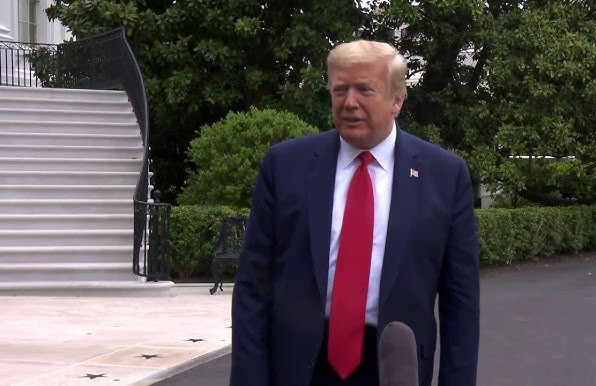
Picture : You Tube/ Video Grab
Anxiety, confusion, panic and nearly blank about the next step, it was a weekend of whiplash for hundreds of thousands of Indians H-1B visa holders.
On September 20, 2025, the US President Donald Trump stunned the tech world by announcing a whopping annual H1B visa fee hike to $100,000. It is 50 times higher than the present fee! Chaos followed: Silicon Valley firms urged staff not to travel outside the country, overseas workers rushed to the airports for the earliest flight to make it in time limit set by Trump, as immigration lawyers worked overtime to decode the order.
However, two days later, the White House sought to calm the storm, clarifying that the fee applied only to new applicants and was a one-off. Yet, the long-standing H-1B programme – criticised for undercutting American workers but praised for attracting global talent – still faces an uncertain future.
Even with the tweak, the policy effectively shutters the H-1B pipeline that, for three decades, powered the American dream for millions of Indians and, more importantly, supplied the lifeblood of talent to US industries. For India, the H-1B became a goal: small-town coders turned dollar earners, families vaulted into the middle class, and entire industries – from airlines to real estate – catered to a new class of globe-trotting Indians. For the US, it meant an infusion of talent across industries. Because of the H1B visa, today, Indian-origin executives run Google, Microsoft and IBM, and Indian doctors make up nearly 6% of the US physician workforce.
Indians dominate the H-1B programme, making up more than 70% of the recipients in recent years. (China was the second-largest source, making up about 12% of beneficiaries.) In tech, their presence is even starker: a Freedom of Information Act request in 2015 showed over 80% of computer jobs went to Indians. The medical sector underlines the stakes. In 2023, more than 8,200 H1B visas were approved to to work in general medicine and surgical hospitals. India is the largest single source of international medical graduates (who are typically in US on H-1B visas) and make up about 22% of all international doctors. With international doctors forming up to a quarter of US physicians, Indian H-1B holders likely account for around 5-6% of the total.
Although President Trump’s decision to increase the H-1B visa fee to a $100,000 is a serious blow and a “triple whammy” on India in the last few weeks, the India-US “crisis” could be partly calming down, I told Karan Thapar today.
Asked to describe the prevailing situation…— Shashi Tharoor (@ShashiTharoor) September 22, 2025
India may feel the shock first, but the ripple effects could run deeper in the US. Indian outsourcing giants such as TCS and Infosys have long prepared for this by building local workforces and shifting delivery offshore., India’s $283bn IT sector faces a reckoning with its reliance on shuttling skilled workers to the US, which accounts for over half its revenue.
IT industry body NASSCOM believes the visa fee hike could “disrupt business continuity for certain onshore projects”. Companies may rethink staffing models – shifting work offshore, reducing onshore roles and becoming far more selective in sponsorship decisions.
The broader impact on the US could be severe: hospitals facing doctor shortages, universities struggling to attract STEM students who make up one in four international students in the US. Young Indians are now rethinking their plans to pursue higher studies and careers in the U.S. and scoping other immigrant-friendly destinations. Countries including China, South Korea, UK and Germany are actively seeking to redirect foreign talent.
Quick to grasp the opportunity was Philipp Ackermann, the German ambassador to India, said in a post on X that his country’s migration policy is “like a German car — reliable, modern, and predictable”. While Germany offers stability, China is aggressively recruiting global talent with new incentives. In fact, Beijing has unveiled a new visa category that will allow successful applicants to enter, study, and work in China without having first received a job offer or research position.
Trump’s latest action, imposing a $100,000 per year fee for each H‑1B application, has repercussions that fall disproportionately on Indian professionals, who make up roughly 70‑71% of H‑1B beneficiaries. By sharply increasing the cost of visa sponsorship, the policy seeks to…
— Dr. Brahma Chellaney (@Chellaney) September 20, 2025
For sure, a lot is at stake for the US while restricting the H1B visa entries. Only time will tell whether the US continues to lead in innovation and talent – or cedes ground to more welcoming economies.


















